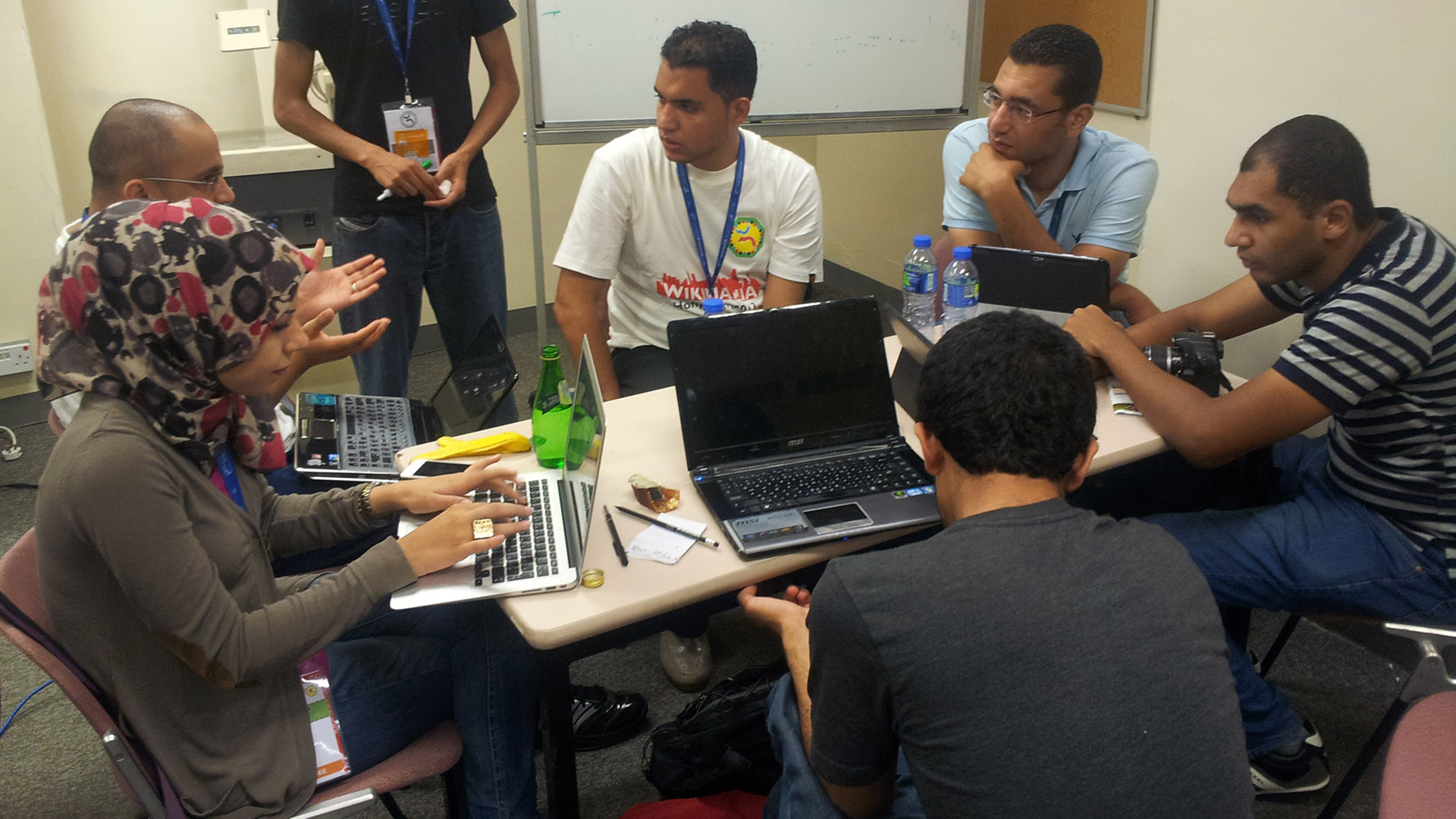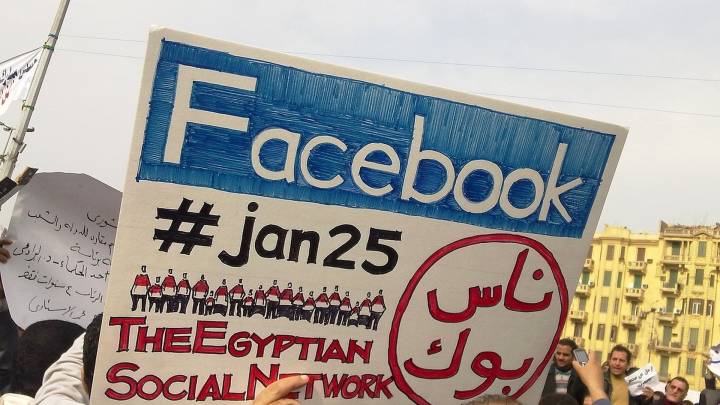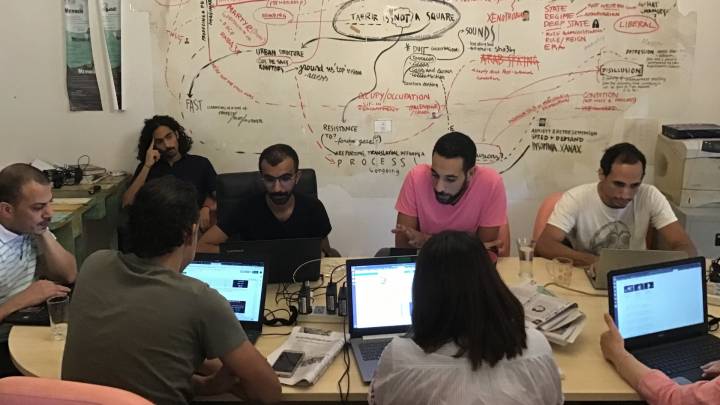The regimes of the Arab world are turning the thumbscrews on their citizens online. And yet social media continues to transform the region long after Arab Spring.
“The Internet learns Arabic” was the headline of my first “Netzgeflüster” column that I penned for the German edition of zenith Magazine ten years ago in the summer of 2009. A decade on, I feel the need to take stock. The learning outcomes are somewhat modest. According to a study by the network market research company W3Techs, only around 0.6% of the 10 million most successful websites in 2019 are in Arabic. Even Czech, which is spoken by just over 10 million people, is more commonplace on the Internet than Arabic, which boasts more than 300 million native speakers.
So the Arabic language is still a novelty online. However, the Internet has long since entered the homes of the Arab world. According to the W3Tech’s estimate, more than 225 million Arabic-native speakers used in the Internet in April 2019. They just do not look at sites in Arabic.
The Internet as a whole has become a place for freedom of expression and dissent in the Arab world, but not the Arabic-language sites. From Morocco to Oman, criticism of the repressive regimes and human rights violations is expressed on international platforms such as Facebook, Twitter and Telegram – mostly in English or Arabic. Activists and journalists who have enjoyed the education offered by English or French-speaking schools express themselves there. Where they not only aim to appeal to the domestic audience, but also hope to attract the attention of journalists and politicians worldwide.
The Internet’s Arabic language content, on the other hand, has not kept pace with the developments of the last ten years either in the surrounding network or in the Arab world offline
The Internet’s Arabic language content, on the other hand, has not kept pace with the developments of the last ten years either in the surrounding network or in the Arab world offline. The news sites of the major state-controlled media outlets continue to dominate the production of Arabic material. Here, innovations in technology or content are nowhere to be found. Many webpages seem not to even attempt to engage the reader. What there is online in the way of independent, critical journalism in Arabic, such as Mada Masr in Egypt or Enab Baladi in Syria, remains the exception.
Facebook and Twitter play an even more critical role. While both sites have now peaked in the USA and Europe and struggle to attract new uses there, they remain an important instrument for information and mobilisation in the Arab world. And this is precisely why the region’s autocratic rulers have these platforms in the crosshairs. Since 2018, every social media account in Egypt with more than 5,000 followers has been by law put under the supervision of the highest media authority. This means that all users of these accounts face fines and imprisonment if they violate political, social or religious norms. An elastic clause that opens the door to state arbitrariness against disagreeable critics.
As of June 2019, citizens in Bahrain who merely follow certain social media accounts face the threat of prosecution. On the one hand, the measure targets accounts of Shia opposition members who have fled into exile. On the other hand, it is directed against Al-Jazeera and other media organisations from neighbouring Qatar. The country has been regarded as an enemy of the state by the other Gulf monarchies since the Saudi-initiated boycott began in 2017. The Bahraini Ministry of Interior stated: “The action against social media accounts that promote social division is a national duty and is part of the protection of the security of our nation.”
The availability of 3G mobile communication only became the standard in 2013. The country then experienced the significant impact of Facebook and Twitter after several years delay
Arab regimes have learnt their lessons from the Arab Spring in 2011. Back then, social media was a decisive factor in the mobilisation of hundreds of thousands of people on the streets of Cairo, Tunis, and Sanaa. From the perspective of Saudi Arabia’s Crown Prince Mohammed bin Salman and his allies Mohammed bin Zayed in the United Arab Emirates and Abdel Fattah al-Sisi in Egypt, the Arab Spring was a historic mistake. It plunged the region into chaos, brought the Muslim Brotherhood to power and strengthened Iran’s influence in the Arab world. To prevent this scenario repeating itself, the autocrats are massively regulating social media.
And yet the events in Algeria and Sudan have shown that social media can still wield tremendous power. This stems directly from technical progress. At the height of the Arab Spring, the use of social media in Algeria was far less prevalent than today. The availability of 3G mobile communication only became the standard in 2013. The country then experienced the significant impact of Facebook and Twitter after several years delay. The same applies to Sudan, where until a few years ago there was hardly any mobile Internet available.
Now, in both countries, opposition activists are mobilising for mass demonstrations, documenting human rights violations by their respective government, and carrying their protests out into the wider world. The regimes lag hopelessly behind the demonstrators when it comes to sending out political messages via social media. They are opting for blunt repression, rather than better arguments. If in doubt, they prefer to cut off the whole country from the Internet for days on end, as they did in Sudan. But that did not really help the Egyptian president, Hosni Mubarak, in 2011.



